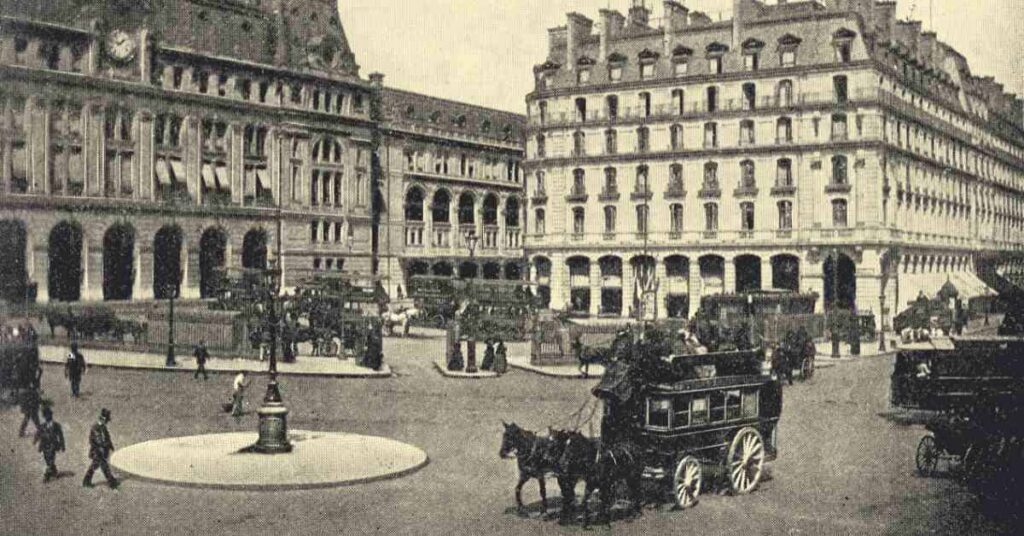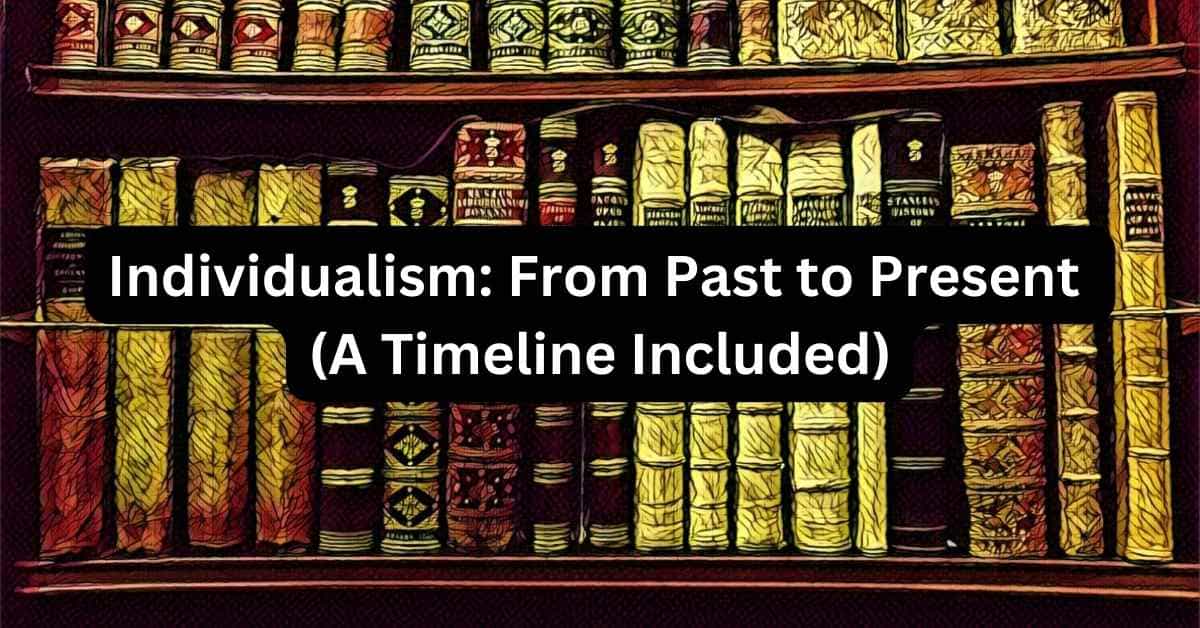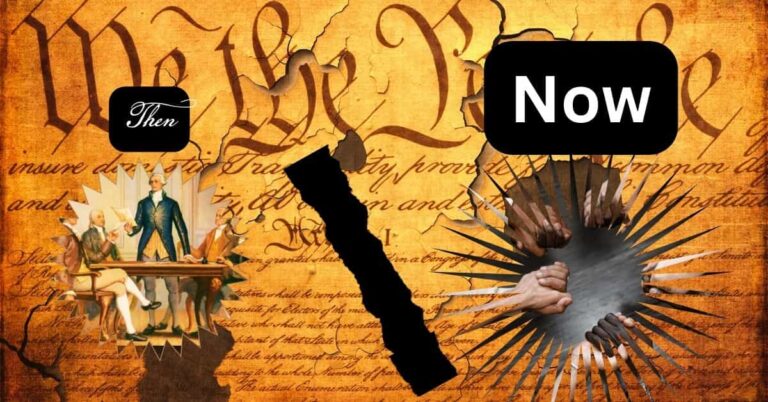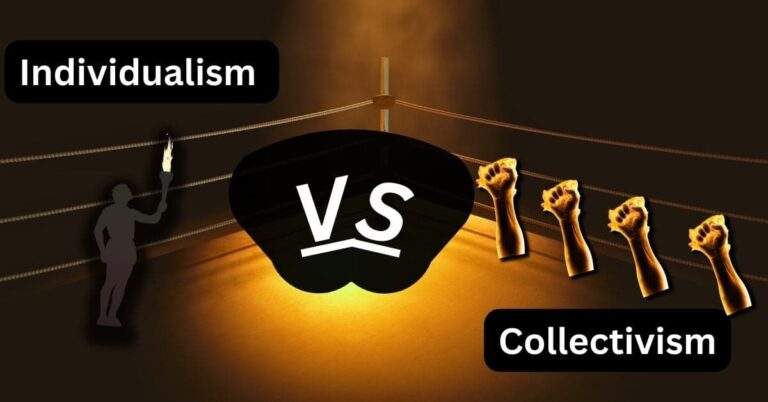Do 10 generations of individualists sound absurdly high to you? You’re included in the growing list of them. How do you fit into this puzzle of American Individualism?
Individualism is an ideology stressing one’s own interest over the collective. Americans embodied this philosophy during the Revolutionary War to demand individual rights. They started their struggle with the Magna Carta in 1215.
Many walk around not understanding the roots of a core American philosophy. I will take you on the journey.
Individualism: The Basics
Individualism’s Definition: What is it?
Individualism is the primary political philosophy guiding American politics and values. It emphasizes:
- self-interest
- self-reliance
- individual rights
Critics call it a selfish and foolish way of thinking. We refer to them as collectivists. And we prove them wrong.
At libertyembers.com, we’re caring self-sufficient thinkers. We debunk the collectivists’ viewpoints by emphasizing kindness and generosity. Our goal is to promote “individuality for the common good”. It is possible to be an independent visionary and care for others.
For instance, on an airplane, you’re told to put on your oxygen mask before you assist others. A mother isn’t selfish by securing her oxygen mask first. She has to stay conscious in the interest of the child and her.
Other terms used to describe this philosophy are:
- Individualistic
- Individualism
- Individuality
I know you’re curious about the basics of individualism. LEARN MORE about the principles of individualism by reading my article.
Great Builders Start the Movement
The earliest roots of change originated from the Magna Carta. King John of England signed this document to ease the political tensions of a populace on edge. It began the foundation for our rights.
Some of its established rights included clauses for:
- A free church
- Reforming the justice system
- First forms of representative government
Yet, 10 weeks after its acceptance, a pope nullified the Magna Carta plummeting England into a civil war. Our rights disappeared as soon as they surfaced.
Was all hope lost with the Magna Carta’s destruction?
19 generations later in 1689, the English Bill of Rights debuted. This guaranteed liberties such as freedom of speech. Again, individualists returned after tough fights to secure these rights.
During that same year 1689, an Enlightenment philosopher named- John Locke- published his famous work Two Treatises of Government. He preached about natural individual rights. We are born with these rights.
It is not a coincidence Locke’s book and the English Bill of Rights appeared around the same period. The sentiment of individuality permeated the English country.
Pivotal Individualistic Times in American History
Our focus in this section is how the discovery of individualism impacted us as Americans. We discussed the backstory above.
The Early Years- Pre-Revolutionary War
Walking up to a wooden ship, the skipper tells you to “Jump aboard!”. You’re bound for America. No longer will you accept subpar conditions in England.
- You demand religious freedom
- You demand not to work from sunup to sundown with no property rights
- You demand more autonomy
Moving to America became your option.
This is the same story millions traveled to the United States for. They wanted a future of liberty. Their homeland’s cultures didn’t embody their self-reliant qualities.
American Revolutionary War -1776
The drums of revolution and war sounded. Descendants of wronged visionaries needed a change from the shackles of tyranny.
Thomas Jefferson penned the Declaration of Independence. With the influence of many Enlightenment philosophers, he drafted our first “freedom document.”
He didn’t want the ashes caused by the American Revolution to end with no hope. Thus, Jefferson proclaimed citizens have individual rights.
His 18th-century philosophy focused on:
- competitive spirit
- free choice
- guaranteed individual liberties
Improving yourself dominated 18th-century beliefs. This meant everyone contributed to civic discourse. Another name is participatory politics.
Debating your foes entertained others. By discussing your ideas and thoughts, you developed your theories into useful policies.
Therefore, you knew methods to improve society inspired by discussion. People expected you to share your talents with the local community. And the end result became a better society.
How do you think the ideas of the Constitution originated? Conversation…
19th Century Individualists (1800-1899)

This era shifted away from the Founding Fathers’ principles.
To give you perspective, our last Founding Father-James Madison-died in 1836. In other words, the personal growth attitude faded from the political mind.
Utilitarian individualism became the dominant influence. It stressed economic power.
The issues below developed into more importance:
- Money
- Wealth
- Career success
Other independent thinkers didn’t like this path, and they sought change.
Expressive individualists wanted less focus on material goods and money. They wanted to explore their identities in what form they desired. In today’s language, they wanted to find “themselves or their inner soul.”
To sum up 19th-century thinking, 2 types existed:
- Utilitarian
- Expressive
Utilitarians loved money. Expressive types loved to find themselves.
Individualism Articles:
- LEARN MORE by reading my blog post on Individualism in U.S. Culture.
- And if you want to LEARN MORE about how soldiers or people lose their individuality. Read my article on the 3-step process to losing yourself.
20th-century Individualists (1900-1999)
The first half of the 20th century saw a consolidation of the individual. People conformed to what became expected of them.
We saw 2 World Wars consume time and people’s energy. Your opportunity to explore your feelings faded. As a result, expressive individualism disappeared into the background.
If your way of life faced annihilation from hostile enemies, only 2 options existed:
- Run
- Fight
America chose to fight as one solid nation during both World Wars. The United States Army drafted men for the war effort. You conformed to Uncle Sam’s desires.
Women helped in supportive roles on the home front. Working together to win the war mattered most-not dramatic displays of individualism.
Thus, after the conclusion of the war, individualism once again grew in popularity.
Communitarianism became the dominant philosophy in the 1960s hippie generation.
This sect of individualism involved a group consensus within the community on decision-making. You kept some of your autonomy but not all. Also, institutions and public policies influenced your overall choices.
John Rawls helped to publicize communitarianism with his book A Theory of Justice.
The 20th century involved 2 distinct trends:
1. 1900-1960
- Saw conformity to fight power-hungry maniacs
2. 1960-present
- Radicals fractured a nation during the start of the Vietnam War era
Conclusion
We discovered the foundations of individualism through the different centuries.
The peasants and the poor protested a lack of rights. Their movement started with the Magna Carta in 1215. It grew over the next few centuries.
Eventually, Founding Fathers as -Thomas Jefferson- adopted the individualist mentality. He decreed it loud and proud in the Declaration of Independence.
The 19th and 20th centuries continued individualism’s transformation. It is the dominant ideology in America today. There is little evidence of it stopping anytime soon.
Are you a proud or quiet individualist?
J. Liberty
Collectivism is the natural adversary to individualism. LEARN MORE as I describe its basics in my compare and contrast article.
References:
Boyer, E. i.-P., Dubofsky, E. M., Monkkonen, E. E., Numbers, E. R., Oshinsky, E.-D., & Rosenberg, E.-E. (2001). The Oxford Companion to United States History. New York, New York: Oxford Uni.
Photo Credits:
© powerofforever via canva.com
2 responses to “Individualism: Past to Present in U.S. History (Timeline)”
-
Anonymous
Your article refers to the US military with regard to protecting our way of life and right to choose (our individual rights) . The military is a collectivist style of governing, the importance and right of the unit and mission over the desire of the individual. Perhaps we need a balance of the two
-
You’re right in that regard. One must look at the military institution as a whole. Civilian and military lives are different. National security is their primary objective. Since we have a volunteer military, if you decide to join, that’s your individual choice to abide by long-term military doctrine and culture of more authoritarian rule. You’re taught to obey and not question superiors.
-




Leave a Comment